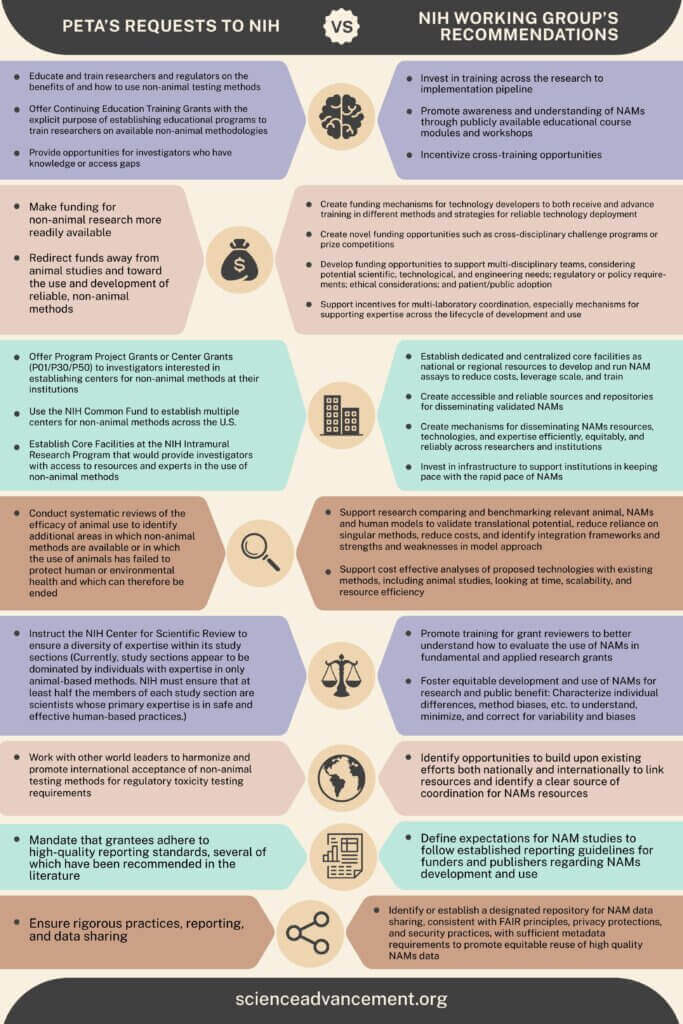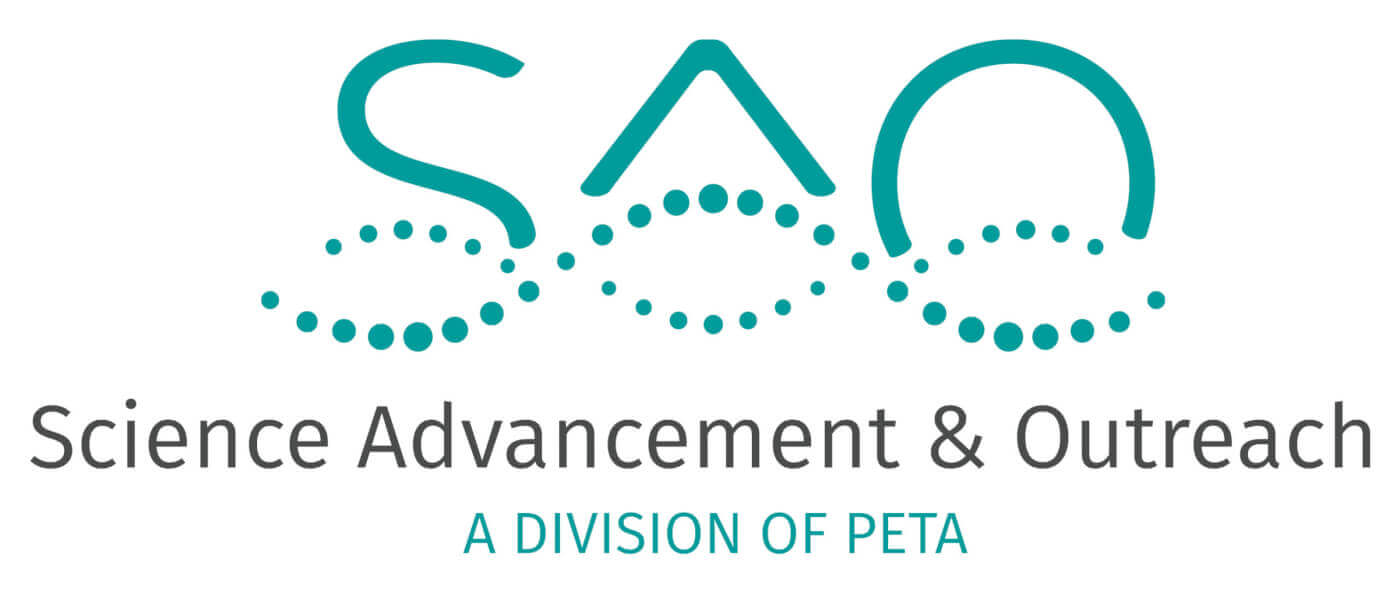NIH Follows PETA Scientists’ Recommendations for Boosting Non-Animal Research
Written by Emily Trunnell, Ph.D.
January 2024

In our work to modernize science policy within the National Institutes of Health (NIH) to better support the use and uptake of non-animal research methods (also known as “new approach methodologies” or “NAMs”), the Science Advancement & Outreach (SAO) division repeatedly responds to NIH’s requests for information on these issues and sends letters to the agency’s leaders with our recommendations.
SAO scientists have recommended that NIH increase funding for and support of NAMs. Additionally, we’ve expanded upon this recommendation by proposing several ways for NIH to do that, including by developing specialized funding, changing and/or implementing new infrastructure, training NIH-funded scientists, and creating opportunities for collaborations between physicians and scientists.
On December 14, 2023, a special NIH working group on NAMs issued its recommendations to the NIH director’s advisory committee. The suggestions previously made by PETA scientists were incorporated into many of the recommendations, which were unanimously accepted. For example, the working group advised NIH to do the following:
- Create new funding pathways for non-animal research
- Inform scientists, regulators, grant reviewers, and the public about these methods and their benefits and provide opportunities for scientists to receive training in non-animal methods
- Establish dedicated national and regional resources and repositories for the tools needed to conduct non-animal science
- Create collaborations among professionals in various disciplines and foster connections between researchers and clinicians, which would work to better incorporate patient perspectives
- Reduce animal methods bias among researchers and reviewers who are less familiar with non-animal methods
- Support research that examines the cost benefits of employing non-animal methods compared to methods based on the use of animals
- Harmonize the use of non-animal methods within and outside the U.S.
- Ensure that data from non-animal methods is transparent and widely available
These recommendations represent progress, but increased investment in non-animal methods alone isn’t enough to reform science. NIH must also stop funding experiments on animals that are poorly translatable to human conditions, are poorly reproducible, and harm the animals used. SAO congratulates the working group on its recommendations and says, “Keep going!”

